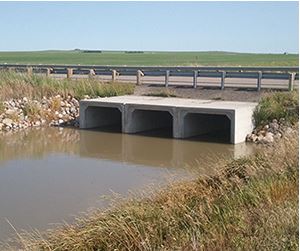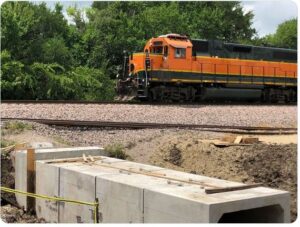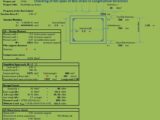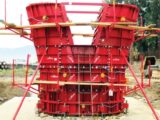
Different Uses of Box Culverts
2 November 2021Table of Contents
Different Uses of Box Culverts
Introduction
A structure in constructions that allows water to flow under a road, railroad, or a similar obstruction is called a culvert.
These are generally made from a pipe or reinforced concrete and are embedded in the soil. Culverts come in different shapes. It can be round, elliptical, flat-bottomed, open-bottomed, pear-shaped, or box-like constructions.
Box culverts are those four-sided culverts used in making short-span bridges like over highways, waterways, etc. These are made of concrete and RCC (Reinforced Concrete) in particular. Box culverts come across as one of the most useful structures in modern construction. They serve various purposes like for intakes and outtakes, steam tunnels, corridor links, road crossings, service tunnels, and utility trenches.
Let’s understand the different uses of box culverts in detail below.
Uses of Box Culverts
Road and Highway Construction:
Box culverts are one of the most important features in road and highway construction. The box culverts let water flow under roads and highways without hampering the flow of traffic. Also, they serve as alternative animal crossings. Since these places need to endure traffic loads and extreme weather conditions, the culverts used here must be robust. Hence it is advised to build culvert out of concrete.

Highway Box Culvert
Use in Railroads :
Just like road or highway construction, box culverts are an essential element used in the construction and maintenance of railroads. They can be used here to replace small bridges or create crossings over creeks and any waterways.

Railway Box Culvert
Box Culverts in Utility Work:
Box Culverts are also required in utility work serving as utility tunnels that carry electricity, water, and sewer lines. In places where the climate is cold, and it is difficult to bury lines below the frost level, utility tunnels are imperative. Additionally, they are used to carry communication lines, such as telephone and cable television.
What makes Box Culverts Cost-Effective?
● Box culverts are a fast and economical method for tunnels under roadways.
● These can be tailored in large sizes to manage increased flow rates and capacities.
● Because of the rigidity and monolithic operation, separate foundations are not required which makes box culverts quite economical.
Suggested Read:
Reinforced Concrete Box Culvert Calculation Spreadsheet
Standard DWG Autocad Drawing For Box Cell Culvert
Pipe Culvert Wing Wall CAD template DWG
Culvert General Plan and Sections Details CAD Template DWG
Box Culvert Curved Concrete Layout CAD Template DWG
Box Culvert Concrete Reinforcement Details CAD Template DWG


